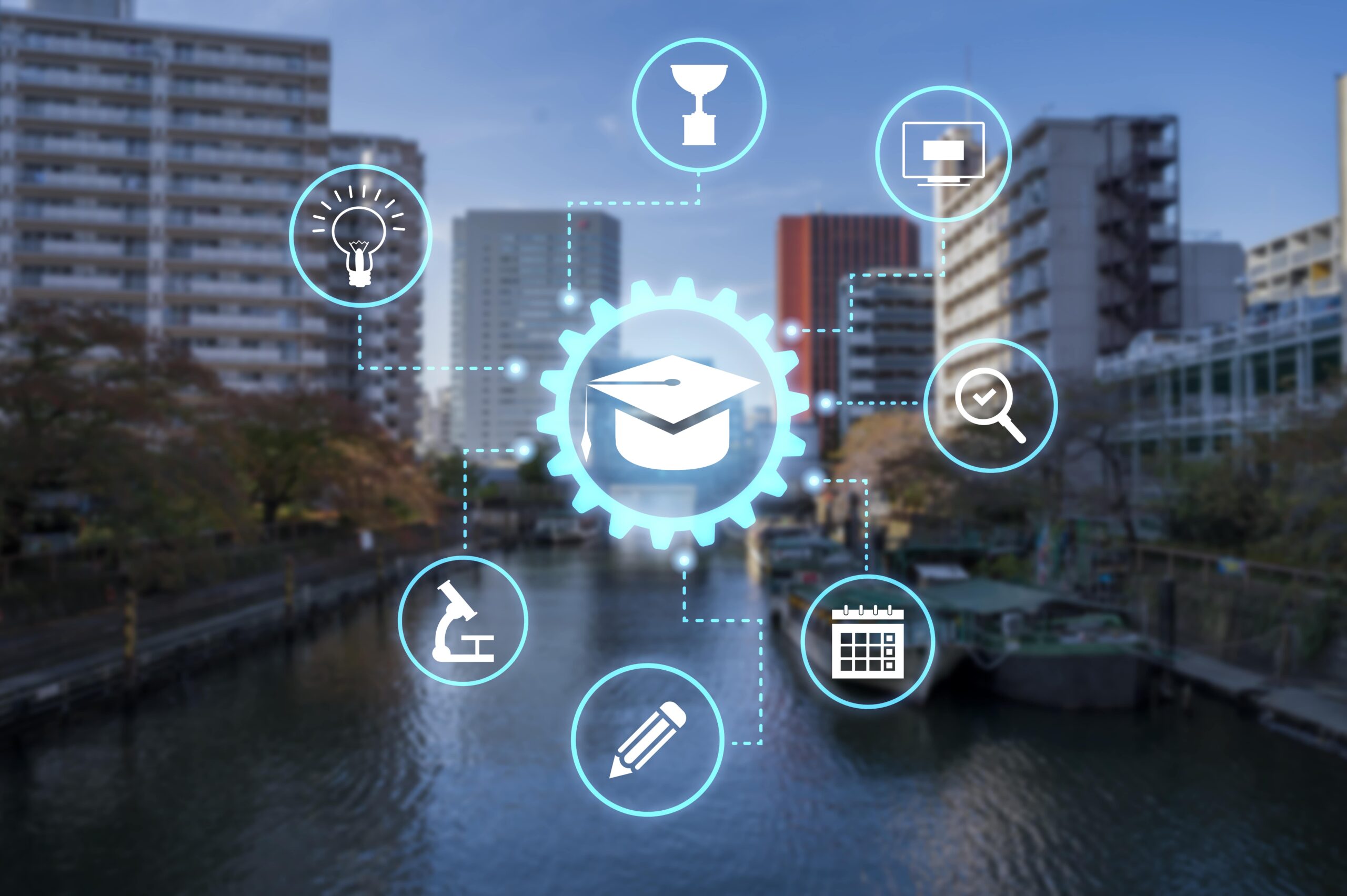Technology
Agentic AI in Education: Benefits, Examples, and Future Trends
Agentic AI in education is transforming the way students learn and educators teach by introducing systems capable of autonomous decision-making and goal-directed behavior. Unlike traditional AI tools that rely on predefined instructions, agentic AI can proactively plan, adapt, and take initiative to support learning outcomes. In educational settings, this means personalized learning paths, real-time feedback, and intelligent tutoring systems that respond dynamically to individual student needs.
Agentic AI not only enhances student engagement and academic performance but also empowers teachers with data-driven insights to refine their instructional strategies. As schools and institutions increasingly integrate digital solutions, understanding the role of agentic AI is essential for shaping the future of education. This emerging technology holds the potential to create more equitable, efficient, and student-centered learning environments—marking a significant step forward in the evolution of educational technology.
What Is Agentic AI and How Does It Apply to Education?
Agentic AI refers to systems that don’t just react—they initiate, adapt, and pursue goals autonomously within educational contexts. Unlike conventional AI tools, which respond to prompts or predefined scripts, agentic AI takes proactive steps to support both learners and educators.
- Adaptive learning agents dynamically tailor lesson content to each student, adjusting to pace, learning style, and knowledge gaps. Platforms like Khanmigo exemplify this approach by offering personalized tutoring sessions that evolve with learners.
- Automated grading and feedback systems evaluate student submissions—such as essays or quizzes—and provide instant, actionable insights, freeing educators to concentrate on higher‑value instructional work.
- Intelligent recruitment agents actively engage prospective students via preferences‑based messaging across channels like SMS, email, and WhatsApp, improving conversion rates and widening access.
- Retention and support agents, such as Georgia State University’s “Pounce,” reach out when deadlines approach or when risk indicators emerge—nudging students toward re‑enrollment and academic success.
In short, agentic AI in education transforms passive tools into empowered collaborators—anticipating needs, adapting strategies, and helping shape personalized, scalable learning experiences.
Related Article:- The Role of Blockchain in Modern Businesses
Real-World Examples of Agentic AI in Education
Here are four compelling real‑world implementations demonstrating how agentic AI is already shaping education today:
- Kira Learning’s AI agents support lesson planning, grading, and personalized learner insights. They build knowledge maps, apply the Socratic method, and free teachers to focus on mentoring—already rolled out in Tennessee’s public schools.
- Khan Academy’s Khanmigo operates as an interactive AI tutor—providing immediate feedback and aiding both students and instructors in planning and data analysis.
- St Mary MacKillop College employs Education Perfect’s AI component to give students real‑time feedback on writing. The school saw a 47% rise in response quality and increased engagement among both students and teachers.
- Harvard’s CS50 Duck: In the CS50 computer‑science course, an AI tutoring chatbot assists students with coding assignments—boosting learning efficiency and offering scalable support to hundreds of learners.
These real‑world cases illustrate how agentic AI is not theoretical—it’s actively enhancing feedback, learning personalization, and teacher productivity across diverse educational contexts.
Related Article:- 10 Powerful Use Cases of Agentic AI in Healthcare
Key Benefits of Using Agentic AI in the Classroom
Agentic AI delivers several impactful benefits that address longstanding educational challenges. Here’s a breakdown:
- Personalized learning paths: AI agents dynamically adjust lessons to match student needs and aptitudes, accelerating comprehension and keeping learners motivated.
- Real‑time, actionable feedback: Automated systems assess student responses instantly, identifying errors or gaps and providing guidance—so learners can iterate and improve promptly.
- Reduced teacher workload: Grading, administrative tasks, and repetitive feedback can be autonomously handled by AI, freeing educators to engage more deeply with students.
- Improved student retention: Agents like “Pounce” intervene proactively—sending reminders or flagging risks, helping at‑risk and first‑generation students stay on track.
- Engaging, gamified experiences: AI can generate dynamic gamified content—smart NPCs or interactive exercises—that adapt in real time to each student, boosting motivation.
- Up‑to‑date content delivery: Agentic systems can self‑update learning materials by scanning current sources—keeping lessons fresh and relevant.
- Enhanced administrative efficiency: Tasks like attendance tracking, scheduling, and communications can be automated, streamlining operations in schools.
These benefits collectively underline how agentic AI improves personalization, efficiency, engagement, and student support—often simultaneously.
Related Article:- How Small Businesses Can Leverage AI for Growth?
The Future of Learning: How Agentic AI Is Shaping Education
Looking ahead, agentic AI is poised to deeply reshape learning environments. Here’s how:
- Persistent learning companions: Advanced AI agents—integrating memory, tool use, and autonomy—will evolve as long‑term educational partners, adapting to each learner over months or years.
- Full curriculum redesign on the fly: Agentic systems could dynamically adjust entire curriculums in real time—based on a student’s pace, comprehension, interests, and context—without manual intervention.
- Multi‑agent learning ecosystems: Projects like MEDCO introduce multiple AI agents (e.g., patient, doctor, radiologist) to simulate realistic, interdisciplinary environments—especially valuable in fields like medical education.
- Creative mentorship AI: Some agents support creative problem‑solving by offering structured guidance, feedback, and task management—especially in middle school settings.
- Emotionally aware agents: Future AI may detect emotional or cognitive states—like stress, confusion, or frustration—and respond with empathy or support, enhancing student well‑being.
- Augmented reality with AI assistance: Combining agentic AI with VR/AR platforms could create immersive, adaptive educational experiences—for example, guided STEM simulations that respond to user choices.
In essence, the future envisions agentic AI not just as a supportive tool—but as an evolving, empathetic, and proactive learning companion, reshaping education into a truly personalized and dynamic journey.
Related Article:- Digital Business Cards: The Future of Networking Explained
Conclusion
Agentic AI in education is more than just a technological advancement—it’s a paradigm shift in how learning is delivered and experienced. By enabling intelligent systems to take initiative, adapt to individual needs, and support both students and educators, agentic AI is driving a more personalized, efficient, and engaging educational landscape. From real-time tutoring to curriculum design and retention support, its impact is already visible and growing rapidly. As this technology evolves, it holds the potential to create more equitable and effective learning environments—reshaping the future of education for learners and institutions around the world.
FAQs
1. What is agentic AI in education?
Agentic AI in education refers to AI systems that autonomously make decisions, adapt to students’ needs, and support personalized learning without constant human input.
2. How does agentic AI benefit students?
Agentic AI benefits students by offering real-time feedback, adaptive learning paths, and personalized support, helping them stay engaged, improve performance, and learn at their own pace.
3. Can agentic AI reduce teachers’ workload?
Yes, agentic AI can automate grading, lesson planning, and administrative tasks, allowing teachers to focus more on student interaction and high-impact instructional strategies.
4. Are there real-world examples of agentic AI in education?
Yes, tools like Khanmigo, Kira Learning, and CS50 Duck are practical examples of agentic AI enhancing teaching and learning in real educational settings.
5. What is the future of agentic AI in education?
The future of agentic AI includes emotionally aware agents, adaptive curriculums, and immersive learning environments, making education more responsive, personalized, and accessible.















